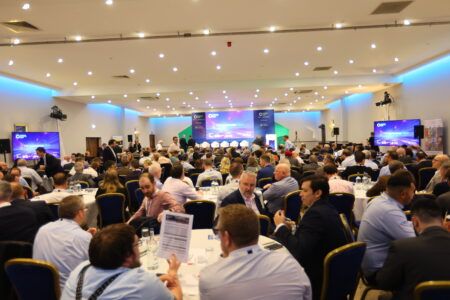The winners have been announced for the Smart Cities Hackathon, hosted by MasterCard and ITS Australia as part of the 23rd ITS World Congress, currently taking place in Melbourne, Australia.
The world of transport technology is accelerating at a rapid rate and for future technologies to be implemented, collaboration from all parties is essential, not just from private, government and industry bodies but from the public as well. As the public will be the end user of the technology, the event’s organizers felt that it only makes sense they are kept abreast and even have a say in what technologies are employed and created by government and industry bodies. ITS Australia and MasterCard’s Hackathon was generated with this concept in mind, and challenged the user to come up with their own solution to improve transportation services throughout cities worldwide.
Some of Australia’s most talented designers, developers and entrepreneurs were given a weekend (October 8 & 9, 2016) to develop apps and online services that can power the cities of the future. The Hackathon was powered by AngelHack, and involved several local partner organizations, including ITS Australia, the City of Melbourne, VicRoads, Intelematics, Data Vic, Public Transport Victoria, RMIT and RACV. Over the two days, the teams were asked to create a business idea and a demonstration app or online service using at least one Mastercard and one partner organization application programming interface (API) that solves one of the three smart cities-related challenges. The challenges were: ‘green’ solutions that encourage the use of sustainable, eco-friendly methods of transport and payments; demand management for transport services for passenger and freight; and helping cities make better use of the wealth of data available.
Entrants were required to provide a solution to the question: How can we match the data being collected with the transportation being used, in order to improve consumer experience, reduce congestion, and make navigation seamless for both individuals and goods?
Hong Yew, Ram Kanagaratnam and Kyle Mantesso’s solution Geolicious beat 16 other teams taking on the challenge and won A$10,000 (US$7,550) in prize money, plus six months of incubation and mentoring to help commercialize the idea. All the competing teams will continue to own all of the original intellectual property they created at the event.
One of the Hackathon’s esteemed judges was award winning technology journalist Chris Griffith, who said, “The winning solution, Geolicious, stood out because it offers motorists ways to avoid upcoming regimes of congestion tax, helps them find alternative routes, and rewards them for using them.”
ITS Australia’s CEO, Susan Harris, said, “Increasingly, established organizations are turning to new disruptive technologies in order to remain relevant and overcome the challenges they face. The addition of a Hackathon to the ITS World Congress is a logical step forward, and one which will demonstrate how big open data and collaboration can address real-world issues and create opportunities.”



